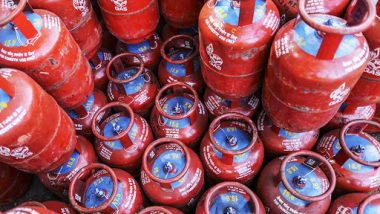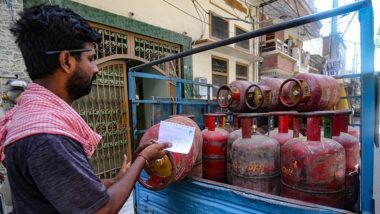New Delhi, November 10: India's transition to clean cooking fuels may be hampered by people's belief that using firewood is better for their families' wellbeing than switching to Liquefied Petroleum Gas (LPG), a new study says.
According to the study, published in the journal Nature Energy, understanding differences in the perspectives of rural Indian women using different fuels is vital to unpack the dynamics of cooking fuel transition.
"Despite India's aim of switching to clean fuels, the scale of solid fuel use in rural areas signals that widespread uptake and sustained use of clean fuels is a distant reality," said Rosie Day, senior author of the study from the University of Birmingham in the UK.
"Whilst cooking is not solely a woman's job, the reality is that, in rural India, women are considered the primary cooks. It is, therefore, critical to unravel how women see the relationship between wellbeing and cooking fuel if India is to make progress in transitioning to clean fuels," Day said.
The study noted that India has more people relying on solid fuels for cooking than any other country in the world. It said providing universal access to clean cooking fuels has been identified as one of the UN's Sustainable Development Goals (SDGs), to which the country is a signatory.
In the current research, the scientists conducted focus group discussions with women in four villages in the Chittoor district of Andhra Pradesh. They said two of the four villages mostly used firewood whilst the other two comprised of mostly LPG users who had switched from using firewood.
According to the scientists, the firewood users believed that cooking with this fuel improved their financial wellbeing because selling firewood generated income, whilst collecting the fuel gave them an opportunity to socialise -- a tradition they hoped to continue.
The people in these villages viewed LPG as a financial burden that gave food an undesirable taste, and feared a fatal canister explosion, the researchers added. LPG users told the scientists that their fuel allowed them to maintain or improve social status, as well as making it easier to care for children and other family members.
They said cooking with LPG freed up time which they could use to work outside the home and earn money, and spend time with their family. The scientists believe future interventions to promote new fuels should actively involve women who used solid fuels and clean fuels, opening discussion about the benefits of each, and allowing cooks to observe different cooking practices.
They said the interaction programmes could inform firewood users about the positive wellbeing outcomes of LPG, address concerns, and promote learning from each other. However, the scientists believe further research is needed to analyse the perceived relationship between women's fuel use and multi-dimensional wellbeing in other settings. "This will help to increase our understanding of how social and cultural factors come into play in transition to clean fuels," Day said.













 Quickly
Quickly




















